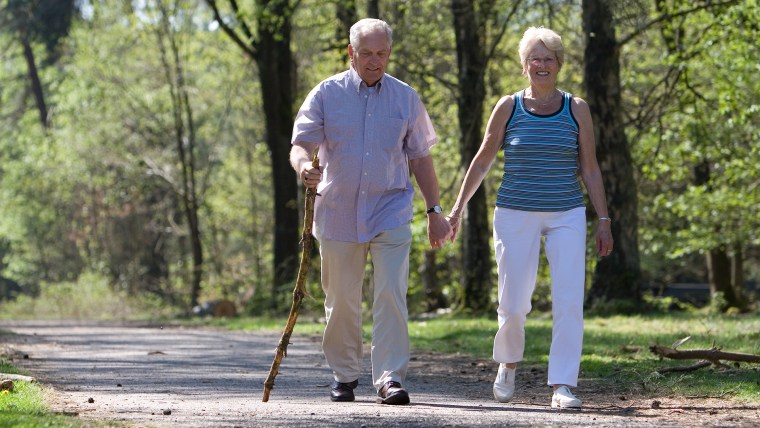An estimated 5.3 million Americans are battling Alzheimer's disease. And, barring any medical breakthroughs, that number's expected to reach nearly 14 million by 2050.
Interestingly, most people living with Alzheimer's are not aware of their diagnosis — only 45 percent say they've been told by a medical professional that they have the disease.
As we approach the end of Alzheimer's Awareness Month, we suggest you read up on the important warning signs of the disease and learn some ways to keep your brain healthy, too. According to the Alzheimer's Association, these are the most common things to be on the watch for:
Memory loss.
It may seem obvious, but one of the most common signs of Alzheimer's is memory loss — and not just forgetting to set your alarm. Recently learned information is most at risk, though after a time, one may begin to forget important dates or events, too, such as birthdays or national holidays. Many with the disease also ask the same question over and over with no awareness that they've already been given an answer.
Difficulty completing familiar, mundane tasks.
People with Alzheimer's often find it hard to complete daily tasks, even ones they've been doing for years and years on a regular basis. Some have trouble remembering how to manage a budget, operate a microwave or other simple kitchen appliance, record a television show, or play a favorite game. And while forgetting how to play Monopoly isn't going to put anyone around them in harm's way, having trouble operating a motor vehicle surely will.
Speaking or writing difficulties.
After a time, those afflicted with the disease will have trouble following or joining even the simplest small-talk session. They may stop in the middle of a conversation with no idea how to continue, or they'll repeat themselves. And their vocabulary, too, will change. They'll find it difficult to choose the right word to complete a sentence, or they'll give everyday items bizarre names as a way of coping with their confusion (e.g., calling a "wristwatch" a "hand-clock").
Misplacing things and being unable to retrace steps.
Perhaps the most frustrating symptom of the disease for both the patient and those around them is this: Putting things in unusual places, and then being unable to figure out where they put the item or why. Alzheimer's patients frequently accuse others of stealing for this reason, even if they harbor no ill will toward the person they're blaming.

There may not be a real cure for Alzheimer's yet, but hope isn't totally lost. Here's how you can reduce the risk of cognitive decline in yourself.
1. Stump yourself, and do it regularly.
Challenge and activate your mind in creative ways, such as building a piece of furniture, completing a jigsaw puzzle, or painting. Believe it or not, these sorts of activities can have both short-term and long-term effects on your brain's vitality.
2. Prevent falls.
Brain injury can increase your risk of cognitive decline and dementia. So, be sure to wear a seat belt, use a helmet when playing contact sports or riding a bike, and take steps within your own home (such as installing sturdy banisters) to prevent falls.
3. Hit the books.
Your parents were right when they told you to study up: Formal education at any stage of life can help keep your brain healthy. Studies show that people with more years of schooling in a classroom-based setting taught by professionally trained teachers shower a lower risk for dementia than those with less schooling. You're never too old to go back to scohol, but you can also make things easier on your schedule and budget by opting for a class or two at a local college, community center, or even online.
4. Fuel up, and get to bed on time.
Research on diet and cognitive function is limited. But certain diets, including Mediterranean and Mediterranean-DASH (Dietary Approaches to Stop Hypertension), may contribute to risk reduction. There's also evidence that not getting enough sleep (whether due to conditions like insomnia, sleep apnea, or just a willful stubbornness) may result in memory and thinking problems — again, this is on both a short-term and long-term basis.
5. Break a sweat.
It's important to engage in regular cardiovascular exercise. Why? It elevates your heart rate and increases blood flow to the brain and body, and several studies have found an association between physical activity and reduced risk of cognitive decline.